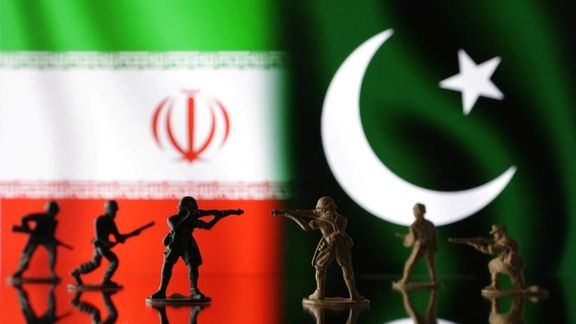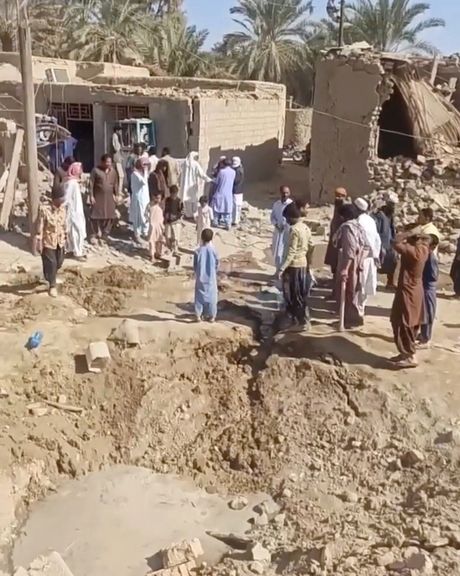Iranians Slam Government For Weak Response To Pakistan’s Airstrike

Iranians have taken to social media to express their anger about authorities’ attempt to downplay the significance of Pakistan’s retaliatory airstrike in Iran.

Iranians have taken to social media to express their anger about authorities’ attempt to downplay the significance of Pakistan’s retaliatory airstrike in Iran.
Pakistan claimed the airstrikes were against alleged militant hideouts several kilometers inside Iranian borders at multiple locations in Saravan area which left at least twelve casualties, including several children.
This type of military confrontation between the two countries is unprecedented. Pakistan's airstrike, which occurred a day after the Revolutionary Guards (IRGC) similarly targeted what it claimed were hideouts of Sunni militants in Pakistan's Baluchistan with missiles, marks the first attack by a foreign country inside Iranian soil since the end of the Iran-Iraq war (1980-1988).
“Missiles were fired into the Iranian soil after 35 years. No one can any longer boast of having protected the country from aggression. This is the result of allowing a group that constantly injects radicalism inside and abroad to grow, a self-appointed radical group that has got its hands on money and the media and has infiltrated decision-making structures,” political sociologist and social media researcher Mohammad Rahbari tweeted.
Pakistan’s response Thursday to IRGC’s attack has been very firm, but many believe the Iranian authorities and state media’s reaction has been disproportionately mild and from a position of weakness.

Iranian authorities, including Interior Minister Ahmad Vahidi and state media, have largely avoided referring to Pakistan as the perpetrator of the attack. Instead, they are describing the airstrikes as "explosions in a village in the border area."
“Three or four kilometers inside Iranian borders is not different from Tehran or Esfahan. The child that was killed is Iranian. He is a guest in our house even if he is not Iranian by virtue of [identity] documents. Security, in an equal manner, is the right of all residents of Iran,” Mohammad-Reza Javadi-Yeganeh, university professor, tweeted.
Shortly after the attack, Ameneh Sadat Zabihpour, a senior IRIB journalist with very close ties to security and intelligence bodies, implied that Iran and Pakistan had coordinated the attack. Her claim has also angered many.
“And they think national power is not undermined if they tell the media [the attack] ‘had been coordinated’ and they can whitewash everything in this manner,” Rahbari wrote. “After hours I have yet not managed to digest these foul reactions.”
The authorities’ insistence on calling the victims of the attack “foreign nationals”, a term they always use to refer to Afghans in Iran, has also been very conspicuous and angered many. Some local sources claim the victims are among the undocumented Iranians living in the southeastern province of Sistan and Baluchestan.
The Shiite clerical regime has refused to issue national identity cards to thousands of Sunni Baluch people over the years, but its television and some loyalists have pretended that the Pakistani attack was not a problem, since those killed were not Iranians. This has prompted the most angry reactions on social media.
“How degenerate must a regime be to call Iran's children non-Iranians. Why? It cannot give a military response to Pakistan; therefore, it tries to gloss over the attack on Iranian soil and the killing of civilians. Pakistan's attack paved the way for other countries [to attack Iran] and showed how weak this regime is,” Youth of Isfahan Neighborhoods, a small dissident group in Esfahan, tweeted.
“To us, being a fellow countryman … is not a worthless piece of paper that you call a birth certificate. To us, those women and children are fellow countrymen even if they were Afghans or Pakistanis, the same way that you are un-Iranian and strangers whether you were born in Najaf [in Iraq as some Iranian politicians are] or in Esfahan,” another tweet with 2K of likes said.